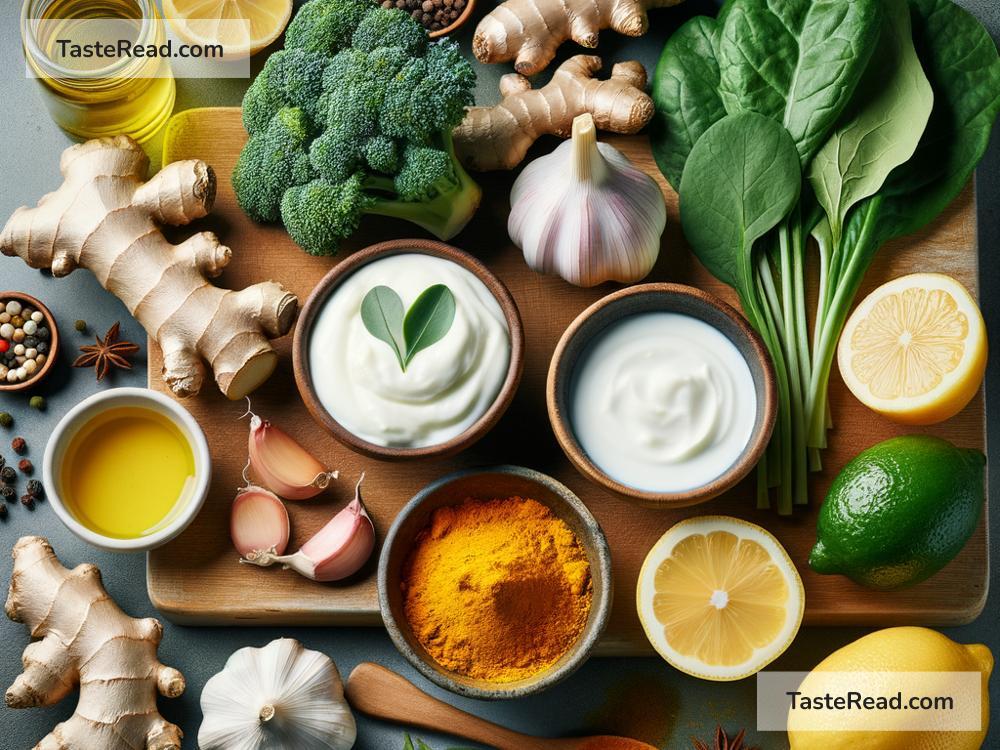Foods That Reduce Risk of Fungal Infections
Fungal infections are a common health issue that can affect anyone. They can occur on the skin, nails, or inside the body. Some examples of fungal infections include athlete’s foot, ringworm, and yeast infections. While medications can treat these infections, eating the right foods can also help prevent them. Certain foods help strengthen your immune system and make your body less friendly to fungi. Including these in your diet can reduce your risk of fungal infections and improve your overall health.
Here are some foods that can protect you against fungal infections:
1. Garlic: Nature’s Antifungal Superfood
Garlic is a natural powerhouse for fighting fungi. It contains a compound called allicin, which has strong antifungal properties. Allicin helps kill harmful fungi and prevents their growth. Eating raw garlic is most effective because cooking can weaken its beneficial compounds. You can add crushed garlic to salads, soups, or sauces to boost your immunity against infections.
Tip: If raw garlic is too strong for you, roasting it can make the flavor milder while still providing some anti-fungal benefits.
2. Yogurt With Probiotics
Yogurt is rich in probiotics, which are good bacteria that help keep your gut healthy. When your gut is balanced, harmful fungi like Candida (a yeast often linked to infections) are less likely to grow. Choose plain, unsweetened yogurt with live and active cultures for the best results. Eating yogurt regularly can boost your defenses and lower your risk of fungal infections, especially yeast infections.
Tip: Avoid flavored or sugary yogurt, as sugar can feed fungi and make infections worse.
3. Coconut Oil: A Healthy Fat With Antifungal Power
Coconut oil contains lauric acid and caprylic acid, two natural compounds that fight fungi. Using coconut oil in cooking or as a dietary supplement can help protect your body from fungal infections. You can also apply coconut oil directly to your skin to treat minor fungal infections like athlete’s foot or ringworm.
Tip: For internal benefits, make sure to use virgin or extra-virgin coconut oil, not the refined version.
4. Ginger: A Warming Spice With Immune Benefits
Ginger is an aromatic spice with antifungal properties. It boosts your immune system and helps your body fight fungal overgrowth. Drinking ginger tea or adding fresh ginger to your meals can make your body less friendly to fungi. Ginger also improves digestion, which is essential for keeping your gut healthy and balanced.
Tip: Pair ginger with lemon and honey in tea for extra immune-boosting benefits.
5. Turmeric: The Golden Protector
Turmeric is a bright yellow spice commonly used in Indian cooking. It contains curcumin, a compound with strong anti-inflammatory and antifungal properties. Adding turmeric to your diet can help prevent fungal infections and protect your body from harmful fungi. Turmeric can be consumed in curries, smoothies, or as a golden milk latte.
Tip: Pair turmeric with black pepper to enhance curcumin absorption in your body.
6. Leafy Greens: Build a Strong Defense
Leafy greens like spinach, kale, and Swiss chard are loaded with vitamins and minerals that boost your immune system. A strong immune system makes it harder for fungi to cause infections. These greens are also rich in fiber, which promotes healthy digestion and prevents fungal overgrowth in your gut.
Tip: Steam or sauté leafy greens instead of boiling them to preserve their nutrients.
7. Citrus Fruits: Boost Immunity With Vitamin C
Citrus fruits like oranges, lemons, and grapefruits are high in vitamin C, which improves your immune system’s ability to fight infections. Vitamin C helps your body produce white blood cells, the soldiers that attack harmful invaders like fungi. Drinking fresh lemon water or snacking on oranges can help keep fungal infections at bay.
Tip: Choose fresh citrus fruits or juices without added sugar for the best results.
8. Nuts and Seeds: Nutrient Powerhouses
Nuts and seeds like almonds, sunflower seeds, and pumpkin seeds are packed with nutrients like zinc, magnesium, and omega-3 fatty acids. Zinc, in particular, is known for its ability to boost immunity and fight fungal infections. Nuts and seeds are easy to snack on, add to smoothies, or sprinkle over salads for a quick health boost.
Tip: Opt for unsalted, raw versions to avoid unnecessary additives.
9. Apple Cider Vinegar: Balance Your pH Levels
Apple cider vinegar (ACV) has antifungal properties and helps balance your body’s pH levels, making it harder for fungi to thrive. Drinking a small amount of diluted ACV can help prevent fungal overgrowth, especially Candida. ACV is also a natural remedy for skin fungal infections.
Tip: Mix 1-2 tablespoons of ACV with a glass of water and drink it before meals.
10. Green Tea: A Soothing Antioxidant Drink
Green tea is rich in antioxidants that support your immune system and fight infections. It also contains compounds that may inhibit fungal growth. Drinking green tea daily can help protect your body from fungal infections and provide a calming way to stay hydrated.
Tip: Avoid adding sugar to green tea, as fungi thrive on sugar.
Final Thoughts
Eating the right foods is a simple and natural way to reduce your risk of fungal infections. Garlic, yogurt, coconut oil, ginger, turmeric, leafy greens, citrus fruits, nuts, seeds, apple cider vinegar, and green tea are just a few foods that can help. Pair these with a healthy lifestyle, such as regular exercise and good hygiene, for the best protection against fungi.
Take a moment to rethink your diet and add more of these fungal-fighting foods into your meals. It’s a small change that can make a big difference in your health! Stay strong, stay balanced, and keep fungi at bay!


